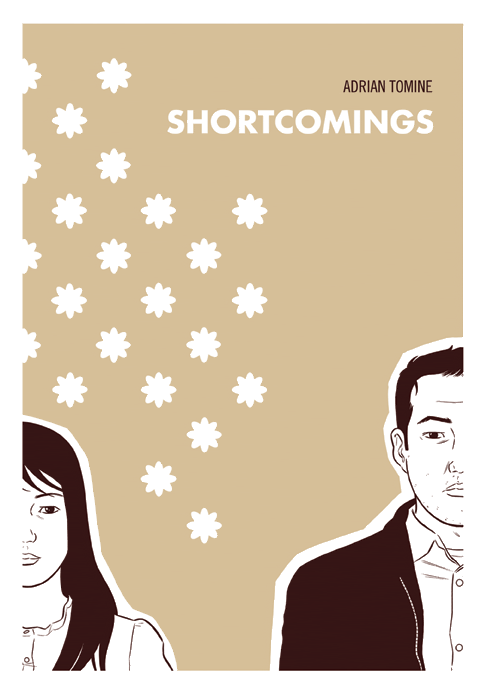Jaundiced Journalism
I offer my deepest condolences to the Virginia Tech community. I’m sorry for your loss.
Now, let’s all take a step back. Pundits and journalists, you first.
By the time I heard about the story late yesterday morning, pundits were already asking if the university and police responded appropriately. Today, the Post asks, “Would more students be alive if the university had stopped them from going to class after a fatal shooting occurred in a dorm?” It’s an unfair question. Imagine you're a physician: a kid comes in with a fever and vomiting. It looks like the flu, and the last couple of kids you treated had the same thing. You treat it, inform his parents, and work to make the kid better. Two hours later, the kid dies of some vicious new flesh-eating disease, the likes of which has never been seen before and will quite likely never be seen again. Did you do everything you could have to save that child's life? Well, no, you didn't - you made a judgment call based on the circumstances and your expertise, and didn't take into account the one-in-a-billion chance that the child might have a flesh-eating virus. But I’d cast doubt on any claims that you were negligent.
Based on the info we have right now, that's a pretty fair analogy to what happened on the Virginia Tech campus yesterday. The police and university had credible reason to believe that this was an isolated incident, and responded appropriately - how could they ever have seen the worst massacre by a single gunman in U.S. history coming? What if they’d sent out a massive campus-wide email and set up a phone tree calling people, only to have widespread panic ensue- people trampling each other in an effort to flee? We're misplacing our focus by scrutinizing the actions of the university and police. Yes, we should investigate and find facts, but until further information comes out to prove otherwise, it's only fair to acknowledge that those parties made tough judgment calls with a limited amount of information. Let's hold off on the media indictments.
There are a million different possibilities of what could have happened, and we could – and unfortunately probably will - obsess for days and weeks over what might have been. But it’s preposterous to ask if this could have been prevented. Given a time machine and Tucker Carlson, anything can be prevented. The same news reports that trumpet the unprecedented nature and scope of this atrocity ask if the university could have responded better and saved precious lives. How can you predict what is unknown? Do we need to get Donald Rumsfeld back out here to talk about unk unks again?
As more facts come out, we’ll be forced to listen to a cacophony of analysis, examining the perpetrator’s psyche and figuring out newer and better ways to make sure this never happens again, twisting facts to forward our own agendas. It’s not terribly difficult to do; I tried out a few of my own: "[Cho Seung Hui, the perpetrator’s] parents are reported to live in Centerville, officials in Fairfax County said." Pshaw, this just proves what I've been saying all along about the growing problem that is Northern Virginia suburbs. Would the banning of the entire northern portion of the state have prevented this catastrophe? Probably. "School president says it was a student living in dorm." A student? In a dorm? AT A UNIVERSITY?! We need to take action and prevent students from living in dorms so that this massacre will never be allowed to happen again. Bear witness; ban dorms! Ugh, it’s going to be worse than listening to a tweenybopper obsess ad nauseum over Billy saying hi to her in study hall. We’ll keep going over it again and again, drawing grand conclusions about society in general based on the actions of a clearly unhinged person - not the best survey sample. We’ll talk until we’re hoarse and raw, sick of the story and ready to move on.
Consider this editorial from the Washington Post, which asks, "And why are gunmen so apt to carry out their lethal rampages at American schools?" Now, I'm no statistician, but of the thousands of gun-related deaths in the U.S. that happen every year, very few of them happen in schools. That's why we’re all shocked- it's just something we don't expect.
Keep reading the editorial; I'll give you a dollar if you can tell me the point. I'm hardpressed to find its purpose - did they have column inches they needed to fill? How is this "America's tragedy?" Is it supposed to be a statement of solidarity? Or is it simply that the Washington Post doesn't condone horrific massacres? Thanks for keeping me posted!
I know the noise of blame is comforting and distracting. On my first break freshman year of college, my mother picked me up and we spent the long car ride in comfortable silence, nothing out of the ordinary. Before we got all the way home, she stopped at a pie shop, the place of my childhood where our family had gone to celebrate after piano competitions or a good report card. We sat down in a booth, ordered pie, and then my mother explained that my father had been diagnosed with cancer and the prognosis was not good. His longtime physician had overlooked the symptoms for what had been probably years, and the cancer had metastasized to most of his body. When the news sank in, I started talking, demanding answers, information, faulting the doctors and their diagnosis. I demanded we sue, that we blame someone and make them pay. I blabbered on, hoping that my words would fill any empty spaces up before the brand-new reality that my father might die could govern that space.
A few months later, I got a call at school. It was time. My aunt and uncle- my father’s brother- picked me up. On the way to the hospital, they talked nervously about anything that came to mind- Monica Lewinsky, real estate tax, his vacation in Florida- anything to distract us from the fact that we were going to say goodbye to my father. We arrived at the hospital five minutes after he died. My mother took us up to the room where he lay lifeless. While each of us took a moment alone with my father, my mother conferred with the nurses, administering the business of death with quiet dignity. She packed up his robe and dopt kit. We drove home in silence. There was nothing to say; my father was dead; that was the long and short of it. Suing his physician wouldn't bring him back. Going back in time to warn Dad-of-the-past to watch out would have, but I lacked the means and the will; grief is nothing if not exhausting. When we got home, Mom wrapped me up in her arms tightly, kissed me on the forehead, and simply said, “I’m sorry. Go get some sleep; I love you.” In all the months of agony, nothing consoled me more than that moment of compassionate empathy. I had been tryig so hard to distract myself; but in one quiet moment, I found solace.
Amidst the headlines competing for different angles on the devastation, something else newsworthy happened yesterday: Columbia University announced the winners of the Pulitzer Prize. Winners were cited for “skillful and tenacious coverage”, “exposure of cronyism and corruption”, essentially, for speaking out when words were necessary. This is the stuff of good journalism. But to speak just because one can, as the Post and its contemporaries have done over the past twenty-four hours is no more than talking nervously to fill the space. For what purpose? Will the frenzied analysis truly prevent madmen from roaming the earth anymore or bring the victims back?
Does anyone remember that story about the Duke University lacrosse team? Think -I know it's reaching way back to last week. One headline succinctly summed it up: "Prosecutor, Press, University Wrong" We were supposed to learn lessons not to make rash judgments and sensationalize news for the sake of a catchy headline. "The lessons here should be obvious. The media herd, in the early 21st century far too eager to fill air time on shouting-head television and space on tabloidesque front pages, can be dangerous to one’s liberty, especially when swarming a story that fits certain politically correct stereotypes." The media blitz almost destroyed the lives of those lacrosse players.
Tingeing the Virginia Tech tragedy with the jaundiced eye of sensationalism does irreparable harm. In the dissonance of overenthusiastic punditry, the elegy of grief will be stifled, the sound and the fury signifying nothing. And at the end of the day, we’re left still hoping that someone will hold onto us tightly and ease the suffering a little bit.







10 Comments:
Find a newspaper and get this essay published. If there is any justice in literary prizes- and there may not be- you will get a Pulitzer for this.
thank you, I couldn't agree more
This is beautiful thank you.
Or is it simply that the Washington Post doesn't condone horrific massacres? Thanks for keeping me posted!
Keeping me POSTed. Funny!
Great post.
I'd rather have an aggressive, questioning media (like the one we saw after Katrina hit) than one that simply reports what they are told (like the one that helped us into Iraq). That means sometimes I'll sometimes I'll be happy they are there, asking difficult and painful questions. And it means sometimes I'll be royally pissed off and want them to slow down.
To me, this means that I'm OK with a day like today, where the media asked the same questions I was asking as I watched the press conference last night - two hours? what the fuck were these people thinking?
In this case, the media had the same reaction that I had, which I will immodestly refer to as the human reaction - why did this happen? You may see it as hours of noise when people should instead be quiet - and a painful desire to turn back the clock/find meaning, assign blame, etc. - but a moment like this is, for better or worse, an accountability moment, where it is appropriate to analyze and dissect judgement calls. No, it doesn't bring people back. And nope, it doesn't even make me feel better.
But at least, perhaps, this type of media probing will give me the answers I need - two hours? what the fuck were these people thinking?
- dbh
So you're condoning what happened with the Duke lacrosse players? Are they just casualties in your thirst for knowledge?
Brilliant post. Whilst we do need tenacious journalists, aggressive scapegoating will do nothing to assist in healing or prevent this from happening in the future. As a former journalist, I know the power of the gatekeeper is immense and all too often they get it wrong because of careless reporting and early judgments. Lives are ruined long after the story has faded.
My sincere condolonces go to the VT community. I am truly saddened by this tragedy.
I didn't comment on that part of your post because I found it to be a specious argument. Sorry, it just didn't work for me.
And to reiterate a point - this event hit you on an emotional level and because of that, you were offended by the media's reaction. Perhaps there will be times in the future - some event that doesn't hit you so hard - where you want to see an aggressive media response. Maybe we have to suffer the bad with the good, but I'd still rather have an aggressive, questioning media than one that sits back and reports the party line.
I really have nothing else to say about this. We'll just have to agree to disagree.
- dbh
I think you missed my point completely, though. I'm not saying that the media shouldn't question- we rely on the media as an ombudsman in many arenas- your point about Katrina is valid (thought by your line of reasoning, if my point about the Duke players is specious, then your point about Katrina must also be specious). I even said in the essay that they should question: "Yes, we should investigate and find facts..."
It's a matter of timing, though. The media's sensationalism, overanalysis to front a particular agenda, and jumping to rash conclusions were all immediately on display within hours after the tragedy happened. It's a good thing to question and to dig for facts, but they need to wait until they come up with some solid answers before they make conclusions.
as far as oversensationalization of what happnd and "making" news to fill 24 news channels it coulndt be more true .
Well written .
Post a Comment
<< Home